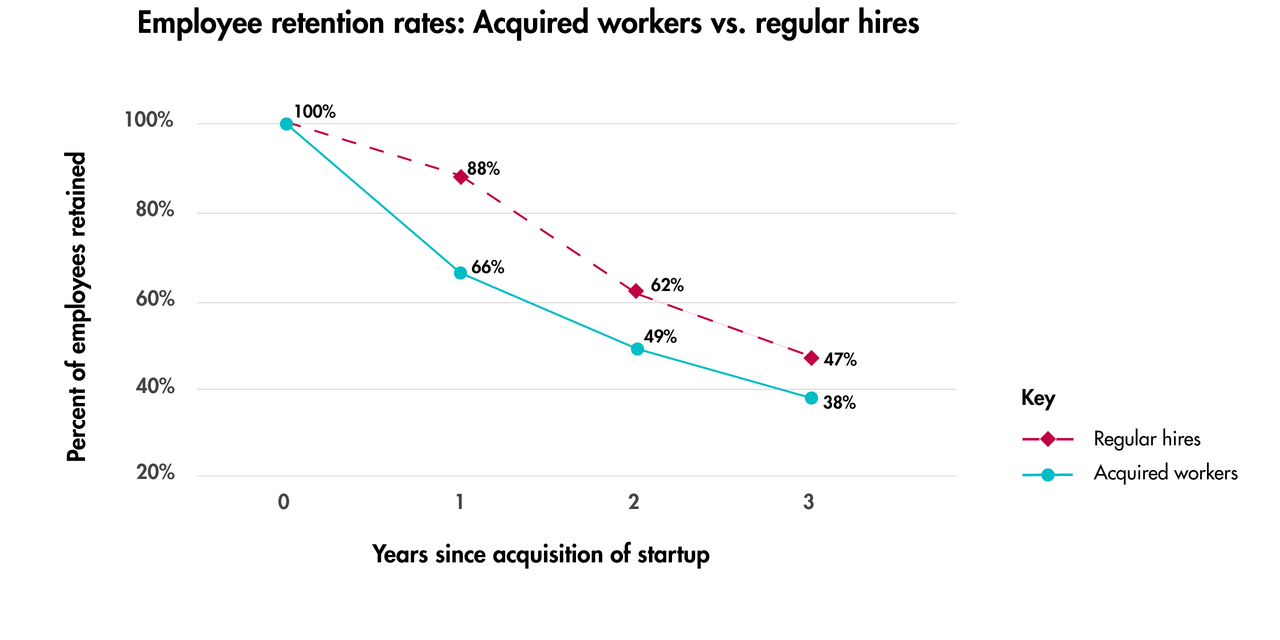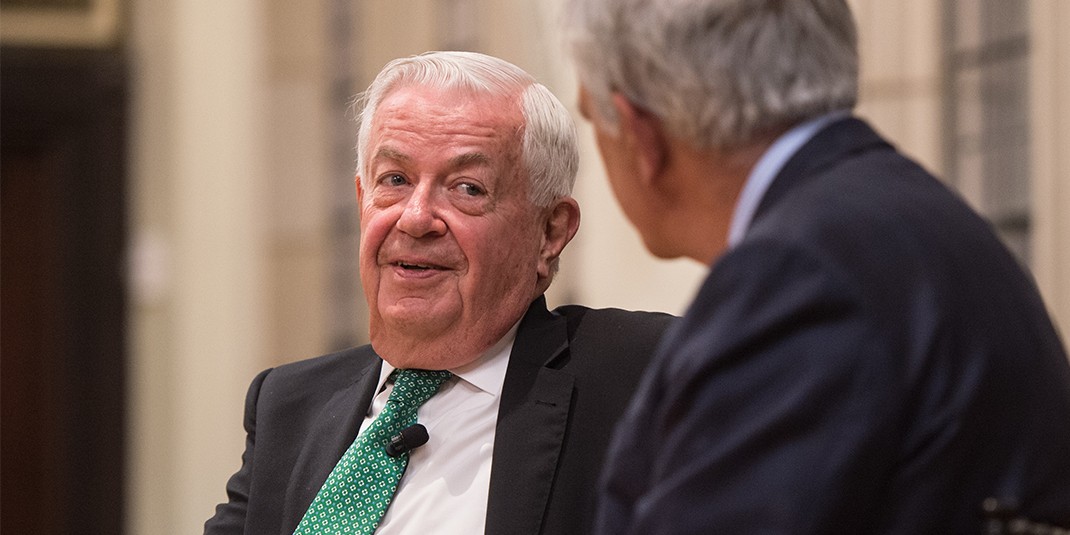Top U.S. Schools That Don’t Require the GMAT/GRE

Applying to a full-time MBA program without a GMAT or GRE is hard to come by for the world’s best MBA programs. Most top U.S. business schools require a competitive GMAT/GRE score to be considered for admissions. However, due to COVID-19, there are a number of top schools that do not require the GMAT or GRE by offering GMAT/GRE waivers.
If you are an MBA candidate who’s not great at taking tests or earned a low GMAT score, don’t worry; you’re not out of luck. There are five programs in the U.S. that will accept your MBA application without the GMAT/GRE, as long as you meet certain specific other requirements.
These are the top U.S. schools that don’t require a GMAT/GRE.
The University of Virginia – Darden School of Business
At the Darden School of Business for select candidates, a standardized test may not be necessary. As a pilot for the 2020-21 application cycle (for the Class of 2023), Darden announced a standardized test (GMAT/GRE) waiver request.
For some candidates, particularly those who meet several of the criteria outlined below, a test score may not be needed for the Darden Admissions Committee to assess their preparedness.
Waiver requests will be evaluated on a case-by-case basis, and the Darden Admissions Committee will consider a number of factors when evaluating these requests. Particular regard will be given for indicators of academic and professional accomplishment, including but not limited to:
- A strong undergraduate and/or graduate record, including performance in analytical coursework or disciplines
- CPA or CFA designation or other professional certification
- Master’s or advanced degree in an analytical discipline
- Seven or more years of progressive, professional work experience in an analytical field
- Strong performance on a U.S. college admissions test (SAT or ACT) or a national exam administered for admission to bachelor’s study in other countries
These factors will be considered in combination with resume and transcripts for all degree-related coursework. Candidates who present a strong profile across several criteria (including supporting materials) are more likely to be granted a test waiver than candidates who meet only one criterion.
Candidates who believe they may qualify for a test waiver on the basis of the above criteria should submit a test waiver request.
Indiana University – Kelley School of Business
The Kelley School of Business Full-Time MBA program admits high-potential applicants for their academically rigorous curriculum. Kelley typically requires the GMAT or GRE as one demonstration of quantitative and analytic capability. In light of the recent challenges associated with taking standardized tests due to COVID-19, candidates may apply for a waiver of this requirement and submit other evidence of their academic qualifications. Kelley anticipates awarding GMAT/GRE waivers for a small percentage of their incoming class. In evaluating waiver requests, Kelley considers many factors, including rigor and achievement from previous undergraduate and graduate degrees, evidence of work experience requiring analytical and quantitative skills, and post–bachelor’s degree career growth including demonstration of leadership.
To request a GMAT/GRE waiver, you must complete the following two steps:
- Complete and submit the Kelley online information request form (to ensure that we have your most current contact information); and
- Submit via email (iumba@indiana.edu) a current professional resume, your unofficial or official undergraduate transcripts (and graduate school transcripts, if applicable), and a brief statement (500 words or less) summarizing why you believe you qualify for a waiver.
The University of North Carolina – Kenan-Flagler School of Business
The UNC Kenan-Flagler Full-Time MBA considers standardized tests such as the GMAT or GRE are a as a beneficial way for their Admissions Committee to evaluate the likelihood of academic success in their Full-Time MBA program, they recognize that some candidates can build a strong case for admission based on degrees earned, academic experience, professional milestones, or certifications. GMAT/GRE waivers are available for new applicants to the UNC Kenan-Flagler Full-Time MBA class of 2023.
Important points to consider before requesting a GMAT/GRE waiver:
- Be objective about your strengths and weaknesses in order to put together the strongest application! Consider whether a test score may help supplement your academic achievements.
- Candidates who present a strong profile across several criterion – such as five or more years of progressive work experience, earning secondary or terminal degrees (i.e. master’s, PhD, JD, MD), professional certifications with a quantitative focus (i.e. U.S. CPA or CFA Level III), or strong test results from the Executive Assessment, LSAT, or MCAT – are more likely to be granted a test waiver.
- Test scores are often a beneficial data point (but not required) for the Fellowship Committee when evaluating an admitted student for a fellowship award.
- Some employers use (or require) test scores during initial screenings, particularly in finance and consulting.
- Receiving a GMAT/GRE waiver does not guarantee admission to the program, and for some applicants, formal offers of admission may be based on the successful completion of Analytical Skills Workshop (ASW) prior to the start of the program.
The University of Texas – McCombs School of Business
The McCombs Full-Time MBA is providing the opportunity to petition for a special test score exception, if you have not been able to take the GMAT, GRE, EA, or TOEFL exams due to the following reasons related to COVID-19:
Applicants who meet both of the criteria below have the opportunity to petition for a special test waiver:
- You are unable to take an exam in-person at a designated testing center due to lack of availability in your region, or because you or someone in your household is immunocompromised, AND
- You are unable to take an exam online due to lack of availability in your region, technology or other test-taking requirements (e.g. device availability or compatibility, slow internet connection, testing environment)
If you do not meet both of these criteria, McCombs requires that you complete the standardized tests prior to submitting your application.
The University of Minnesota – Carlson School of Management
The Carlson School of Management continues to be one of the best MBA programs in the midwest. Candidates applying for admission to the Carlson Full-Time MBA program may be eligible for a GMAT/GRE waiver if they meet the following criteria:
- Must have one of the following:
- Previous undergraduate degree with 3.2+ cumulative GPA at an accredited institution using a 4.0 scale or better (domestic or international)
- Demonstrates quantitative ability through coursework (ex: Statistics, Engineering, Accounting, etc)
- Previous undergraduate degree in a STEM (Science, Technology, Engineering, Mathematics, etc) field with a 3.0+ cumulative GPA at an accredited institution using a 4.0 scale or better (domestic or international)
- Previous undergraduate degree with 3.2+ cumulative GPA at an accredited institution using a 4.0 scale or better (domestic or international)
- Must have one of the following additional requirements:
- 5+ years of full-time professional work experience
- Note: internships or co-ops cannot be included. Graduate assistantships and fellowships can be included.
- 4+ years of full-time military experience
- Graduate (masters or doctoral) degree
- Professional credential of CPA or CFA
- 5+ years of full-time professional work experience
Please note that a candidate must meet both areas requirements of the waiver process in order to be granted a waiver.
The Ohio State University – Fisher College of Business
The Fisher Full-Time MBA will consider your application without a GMAT, GRE, or EA test score as long as you meet the following minimum qualifications:
- Earned a 3.2 (on a 4.0 scale) undergraduate cumulative GPA or higher; and
- Achieved a grade of B or better in at least two college-level quantitative courses (algebra or higher); and
- Have a minimum of 4 years of post-baccalaureate work experience. You may not request a waiver if you have already taken the exam and requested your scores be sent to The Ohio State University.
The decision to grant the GMAT/GRE/EA waiver is made at the discretion of the Fisher Admissions Committee. Should the committee decide that a GMAT,GRE, or EA score is needed to fully evaluate your candidacy for the MBA program, you will be informed once your application has been initially reviewed.
In summary, if you are preparing your MBA application, be sure to review each schools official GMAT/GRE waiver process to ensure that you meet the requirements to request a GMAT/GRE waiver so you can attend a top-tier program. The U.S. schools that do not require the GMAT/GRE during COVID-19 may continue to expand, so stay up-to-date by registering with MetroMBA for more announcements.
Additional Resources:
MBA Programs that do not require the GMAT or GRE
Top Canadian Schools That Don’t Require the GMAT

Applying to an MBA program without a GMAT score can be a tricky business. Most business schools in the U.S. and Canada require a competitive GMAT score to be considered for admissions. However, that’s not always possible for every applicant.
If you are an MBA candidate who’s not great at taking tests or earned a low GMAT score, don’t worry; you’re not out of luck. There are five programs in Canada that will accept your MBA application without the GMAT, as long as you meet certain specific other requirements.
These are the top Canadian schools that don’t require a GMAT. Continue reading…
MIT’s New Free Online Sloan Course, and More – Boston News

Let’s explore the most interesting stories to emerge from Boston business schools this week.
Free Online MIT Sloan Course Explores the Future of Work – MIT Sloan Ideas That Matter
Automation, globalization, and new technologies can drastically change the future of the working world. In response to the growing sense of uncertainty about work’s future, a free online course created by a group of MIT Sloan experts explores how we can exert influence over the shape and form our future work will take.
Entitled “Shaping Work of the Future,” the course will focus on how technology is disrupting work and how we can adapt technology to augment rather than replace human work.
Professor of Work and Organization Studies at Sloan, Thomas Kochan asserts, “There’s no iron law of technology and no iron law of globalization. We can influence how these things play out and manage them better. But we’ve got to understand what the choices are, and we’ve got to get people really energized and taking actions to shape these forces.”
The course is open to the public and was designed to accommodate the global scope of the topic. Kochan adds:
“We need to get a message out to people around the world, young workers, but even more to experienced workers and leaders of business and government, that we can influence the future of work. We don’t see enough people understanding that they really can have an influence over these issues and have an impact.”
You can read more from the recent article here.
HBS Research Addresses Innovation Problem in Frontier Markets – Harvard Business Review
New Harvard Business School research on emerging markets reveals how market-creating innovation not only generates growth for companies but also galvanizes infrastructure, cultivates institutions, and mitigates corruption.
Contrary to popular opinion hat a society must “fix” its structures and institutions in order to foster innovation, authors Clayton M. Christensen, Efosa Ojomo, and Karen Dillon present the argument that innovation is the process by which a society develops. Thus when a country encounters roadblocks to prosperity despite activity within its borders, the country may not have a development problem—they might have an innovation problem.
“Market-creating innovations don’t wait for such obstacles to be removed by resources that are pushed in. They essentially pull in the necessary resources—creating workarounds or funding the infrastructure and institutions needed to deliver their products—even if those efforts are not initially supported by the local government.”
MicroEnsure’s Richard Leftley remarks on the power of innovation, “It’s difficult to run a ruler over things you can’t see. But when you strip away the layers of conventional thinking about what’s not possible and start to re-imagine what is, you can begin to create something really powerful. And that, in turn, has the potential to change the world.”
Check out the rest of the HBR article here.
BC Alum Takes Home Cox Conserves Heroes Award – Carroll School of Management News
BC Carroll alum Shavel’le Olivier, ’14, is the new co-chair of the Mattapan Food and Fitness Coalition’s Vigorous Youth program. In her role, Olivier coordinates volunteers, research, writing grants, planning events, and handles administration. This past fall, Olivier was awarded the Cox Conserves Heroes Award, presented by Boston 25 News in partnership with Cox Enterprises and the Trust for Public Land. The award recognizes a local environmental volunteer for work improving outdoor spaces. Along with the honor, Olivier received $10,000 to donate to MFFC.
Olivier credits her Boston College experience with boosting her leadership skills in unexpected ways.
“Those classes gave me a foundation that helped me explore how I am a leader—and that leaders are not [shaped by] cookie cutters, with shared characteristics, like being outgoing or able to talk a lot. You can be a leader by focusing on your strengths.”
Olivier also credits mentors such as Vivien Morris, the founder and co-chair of MFFC and community engagement manager for the Carroll School’s Joseph E. Corcoran Center for Real Estate and Urban Action. “These women in different leadership positions were inspirational to me. They encouraged me and made me more comfortable taking on more leadership roles.”
You can find out more about Olivier’s work here.
Gig Jobs vs. Full-Time and Revenue Sharing – Boston News

Let’s explore some of the most interesting stories that have emerged from Boston business schools this week.
Should It Be a Gig or a Job? – Questrom School of Business News
New research from Boston University Questrom School of Business‘ Associate Professor Andrei Hagiu and National University of Singapore’s Julian Wright examines how firms classify an employee versus an independent contractor, and how this relates to revenue sharing.
Hagiu notes that this classification greatly depends on the amount of decision-making power that firms cede to workers—and that appropriate revenue sharing should follow suit.
“In many cases, the share of variable revenue that is retained by workers is a good proxy for whether they can be considered independent contractors or regular employees,” says Hagiu.
The research notes:
“Firms that wish to classify their workers as independent contractors and provide a higher share of transferable decisions to workers should be paying them at least half of variable revenues. Firms that pay less than half of variable revenues to a worker should likely employ the worker, but provide a lower share of transferable decisions to workers.”
You can find out more from the research here.
Your Acquired Hires are Leaving and Here’s Why – MIT Sloan Ideas That Matter
Large companies often acquire startups in order to eliminate competition, with the added benefit of gaining skilled and innovative workers. Unfortunately, new research from MIT Sloan doctoral candidate Daniel Kim shows that this “acqui-hiring” strategy is not as effective as some think.
According to Kim’s paper, “Predictable Exodus: Startup Acquisitions and Employee Departures,” within the first year of a company’s acquisition, 33 percent of acquired workers left, compared to 12 percent of regular hires.
While those percentages tend to level off over time, in the three-year window Kim studied, acquired workers were 15 percent more likely to leave than new hires. This exodus is largely due to an organizational mismatch and new hires’ lack of agency.

Employment retention data, courtesy of Meredith Somers at MIT Sloan.
“People who work at startups join a startup for a reason,” Kim says. “Primarily they want to be in a very entrepreneurial, scrappy organization. But once they get acquired by a big firm, that is in direct opposition with the preferences that they have.”
You can read more about Kim’s research here.
The Accidental Restaurateur – Carroll School of News
Joe Essa, BC Carroll Alum ‘79, told the Carroll School of Business Blog that it was “a bit of a fluke” that he ended up becoming a successful restaurateur and ultimately the President and CEO of Wolfgang Puck Worldwide, overseeing more than 50 eateries across the nation along with licensing Puck’s cookbooks, canned soup, and other consumer products.
In 1983, when tending to his ill father in Greensboro, Essa was approached by a real estate developer friend, who needed a restaurant to complete a shopping center project. Café Pasta, Greensboro’s first casual Italian restaurant, was born.
Essa refers to the curriculum he learned at Carroll to keep him on track: “I always drew upon my accounting training … I knew you had to end up with some money in the bank! So I was very disciplined in that regard from day one.”
Eventually Essa sold his share of Café Pasta and came to work with Wolfgang Puck in 1999. He spoke passionately about his eclectic role within the organization.
“It’s not just one kind of dining, it’s many different kinds of restaurants, different cuisine. And then looking into the leases, license agreements, and marketing and promotion for all those businesses. And the people you get to meet along the way are fascinating. You get up every day and it’s different, it’s exciting, and it’s humbling. I just count my blessings.”
Click here to find out more about Essa’s life and career.
Harvard Talks Managing Disorganized Employees, and More – Boston News

Let’s explore some of the most interesting stories that have emerged from Boston business schools this week.
How to Manage Someone Who Is Totally Disorganized – Harvard Business Review
Disorganized employees can be wellsprings of frustration, but there are ways to help them better understand how disorderly tendencies impact others.
Harvard Business School‘s Rebecca Knight recently discussed strategies in HBR, addressing root behavior causes and ultimately develop better systems to manage workloads.
“’Is this person’s approach creating negative outcomes, or is it just a style difference?’ If your report indicates ‘disorganized but otherwise reliable, you may have to back off.'”
Rosie Perez (not the actor), Lead Financial Officer of Global Consumer Business Planning and Analytics at American Express, adds, “It takes a lot of time to change ingrained behavior, but it can be addressed. Most importantly, as leaders, it is our job to help coach our colleagues [with] constructive and pointed feedback.”
You can read more about the research here.
Bye-Bye Ivory Tower: Innovation Needs an Ecosystem to Thrive by Tracy Mayor – MIT Sloan Ideas Made to Matter
Innovation is not exclusively indigenous to Silicon Valley. We continue to see exciting developments in London, Tel Aviv, New York, Boston, China, Nigeria, Ghana, and South Africa. However, despite the benefits of globalization, the world of innovation is not wholly flat.
New MIT Sloan research has determined that there are geographic hotspots, or “innovation ecosystems,” where ideas move more easily from inception to impact.
Phil Budden, a Senior Lecturer Specializing in Innovation and Entrepreneurship, notes how the traditional “triple helix” that has long driven innovation—university, government, and corporations—is now joined by two additional players: entrepreneurs and risk capital.
“It’s so important to have innovation-driven entrepreneurs involved. They’re producing the companies of the future. You can’t just have today’s companies [in an ecosystem], you need to have those leaders who are going to produce future companies.”
Fiona Murray, Associate Dean for Innovation, urges corporations to take advantage of startups and entrepreneurs to help experiment on their behalf.
“What these startups tend to do very well is define, order, and test their assumptions through a series of what we call ‘innovation loops. So, one of the benefits of going from a purely internal research and development process to working externally is that you can really rely on the universities and startups in an ecosystem to do that experimentation for you.”
You can read more about global innovation here and watch the recent discussion below.
Joy Field Garners Top Award from Decision Sciences Institute by William Bole – Carroll School News
BC Carroll School of Management Associate Professor of Operations Management Joy Field has received the highest honor bestowed by the Decision Sciences Institute (DSI), a global society of more than 1,800 scholars dedicated to fostering knowledge for better managerial decisions.
Field was named the 2018 co-recipient of the Dennis E. Grawoig Distinguished Service Award, named for a founder of the 50-year-old Institute. The other recipient was Morgan Swink of Texas Christian University.
DSI President Johnny Rungtusanatham of Ohio State University asserts, “This is a highly competitive distinction awarded to those who have made a continual impact on the Institute and the disciplines it serves.”
Field reflected on her two decades of involvement with the Institute. “DSI has been a major contributor to all aspects of my professional development—publishing, teaching, and service—and I am delighted to have been chosen to receive this award from among the many colleagues who have also contributed so much to DSI.”
Find out more about the recent award here.
HBS Examines the Allure of White-Collar Crime, and More – Boston News

Welcome back and a happy 2019!
Let’s explore some of the most interesting stories that have emerged from Boston business schools this week.
Interviewing White-Collar Criminals: 6 Tips from Harvard Business School’s Eugene Soltes – Journalist’s Resource
Denise-Marie Ordway from Journalist’s Resource recently profiled HBS professor Eugene Soltes, who’s 2016 book Why They Do It: Inside the Mind of the White-Collar Criminal surveys what “drove dozens of wealthy, successful businessmen to become white-collar criminals.”
Soltes offered six tips for journalists on how to build trust and develop rapports with potential sources behind bars.
- “Don’t lead with personal questions and questions that probe into the meatiest details of a convict’s crimes.”
- “Have a plan for whether and how you’ll use sensitive information that sources might divulge once they trust you.”
- “If you want prisoners to talk to you, write them a letter.”
- “When interviewing individuals who are incarcerated, choose phone calls over in-person meetings. You can develop a rapport more quickly through four 15-minute phone calls than one hour-long, in-person conversation.”
- “Establish a system of checking your biases to limit the impact your relationships with sources could have on your work.”
- “If you’re describing someone’s feelings, opinions or mindset, consider letting that person review what you have written to make sure it represents them accurately.”
You can read more from the Soltes profile on white collar criminals like Bernie Madoff in Journalist’s Resource.
Stocks & Bonds, Eggs & Bacon – Sawyer Business School
In early December, 2018, the first Summa Breakfast at the Sawyer Business School featured Amundi Pioneer Asset Management CIO Ken Taubes, MBA ’84, who offered his insights into “where the global economy has been and where he thinks it is going.”

A look inside the Summa Breakfast, held last month at Sawyer Business School / Photo via suffolk.edu
Taubes was surprisingly optimistic: “The dollar’s been strong, and the economy’s fine. In the macro sense for consumers, it hasn’t been this good in a long time.”
He also advises attendees to “turn off the noise and look for opportunities.”
You can read more about the recent Sawyer event here.
The Billionaire Next Door – Carroll School News
Boston College’s Joseph E. Corcoran Center for Real Estate and Urban Action recently hosted billionaire philanthropist Bill Cummings, a “model real estate developer with a strong conscience,” who spoke to roughly 70 BC community members.
After an overview of Cummings’ inspiring rags-to-riches story, along with a remarkable career ascent, he urged attendees to “do the things you want to do, and do them reasonably well.”

“An entrepreneur won’t find success by getting into a putatively lucrative industry that he’s not passionate about,” Cummings said at a recent BC event. / Photo via bc.edu
Cummings was recently honored as one of the Top 50 Givers by Forbes. The Cummings Foundation, according to the article, has “awarded more than $200 million to nonprofits in the Boston area.”
“The grants have made an impact near and far, from soup kitchens and homeless shelters in Essex, Middlesex, and Suffolk counties, all the way to Rwanda, where the foundation has established medical centers in collaboration with Boston-based nonprofit Partners in Health.”
Cummings closed with a paraphrased quote from dancer and actress Eleanor Powell:
“What we are is God’s gift to us. What we become, and what we do with our lives, is our gift to God.”
You can read more about Cummings here.
